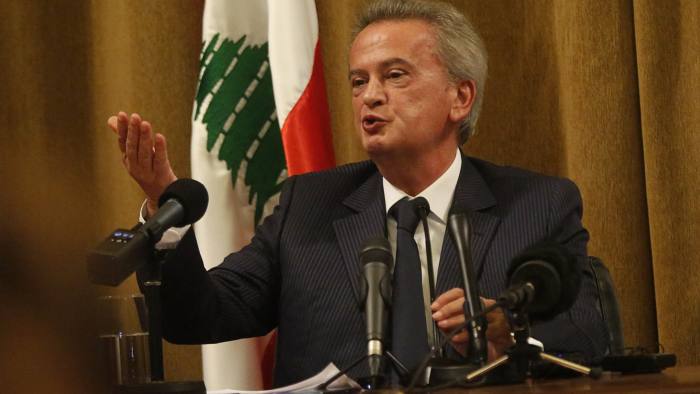Lebanon’s dollar bonds tumbled to new record lows on Monday after the government declared on Saturday it could not pay forthcoming debt maturities.

Several issues fell more than 7 cents, , to as low as 17.5 cents in the dollar, according to Tradeweb data.
With a $1.2 billion bond due on Monday, Lebanon’s announcement sets the stage for its first sovereign debt default.
Lebanon’s economy minister said Monday that negotiations to restructure the country’s foreign debt are projected to last around 9 months, if all goes well with creditors.
A major financial crisis has rocked Lebanon since October last year, when citizens took to the streets in mass protests against the ruling elite.
Dire financial straits
On Saturday, Prime Minister Hassan Diab said foreign currency reserves were at a “critical and dangerous level”, adding that basic imports would soon be affected.
The country was due to repay a $1.2 billion bond on Monday.
Lebanon’s public debt stands at around 170% of annual gross domestic product, making it one of the world’s most heavily indebted states.
After the default, many analysts said the International Monetary Fund (IMF) is Lebanon’s only hope to secure financial support.
But Hezbollah, a powerful group backed by Iran, is opposed to a deal with the IMF, because it would likely seek to impose stiff fiscal conditions that could cause a popular revolt.
Widespread protests
Lebanese citizens came out in force near banks late last week ahead of the official announcement of the default.
They were protesting against government regulations that were stopping them from withdrawing their funds from banks.
The protests are part of a broader movement that started in October 2019 in response to proposed taxes on WhatsApp, a messaging service.
The movement quickly snowballed into an anti-government protest that forced then-Prime Minister Saad Hariri to resign.
Analysts say the current financial crisis poses a significant risk to Lebanon’s stability, probably the greatest since its 15-year civil war that ended in 1990.
REUTERS/AP

Leave a Reply
You must be logged in to post a comment.